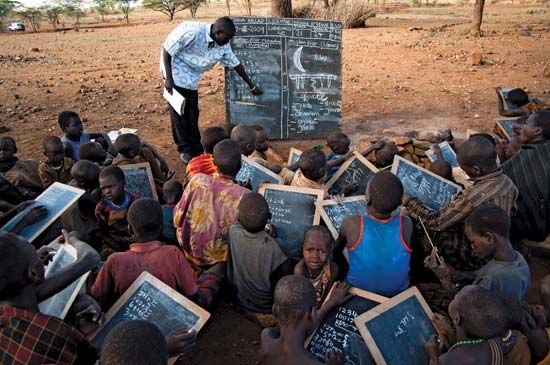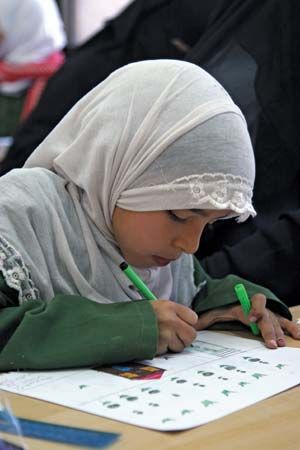Introduction



UNESCO is a special organization of the United Nations (UN) that works with countries to improve education, science, culture, and communication. The full name of UNESCO is United Nations Educational, Scientific and Cultural Organization. Since the late 20th century UNESCO has focused on helping countries to teach people to read and write and to make education free for everyone. It also holds international meetings where experts from different countries can share ideas and knowledge. These events are aimed at helping solve global problems, such as protecting the environment and improving school systems. The organization’s headquarters are in Paris, France.
Background
UNESCO was founded on November 16, 1945, and officially started its work the next year. At first its focus was on rebuilding schools, libraries, and museums that had been destroyed in Europe during World War II. In the 1950s many less-developed countries began to join the UN. UNESCO therefore devoted more resources to those countries’ problems, which included poverty, high rates of illiteracy (not being able to read or write), and a lack of economic development.
UNESCO also works to protect the environment and important cultural sites. In the 1960s the organization helped save ancient Egyptian monuments from being flooded by the development of the Aswan High Dam. In 1972 it established the World Heritage List, which includes cultural sites and natural areas that are to be preserved and protected.
Members
UNESCO has more than 190 member countries, which work together to support the organization’s mission. The countries provide most of the funding for the organization. Every two years a general conference meets to set the budget, activities program, and contributions owed by each country. Each country gets one vote in decisions. A 58-member executive board gives advice and helps guide the work of the organization.
Each country that belongs to UNESCO establishes a small group, called a national commission. These commissions include experts from the country who advise UNESCO on how to understand the needs of the country’s people. Most work occurs in special committees, such as the World Commission on the Ethics of Scientific Knowledge and Technology, which was established in 1998.

